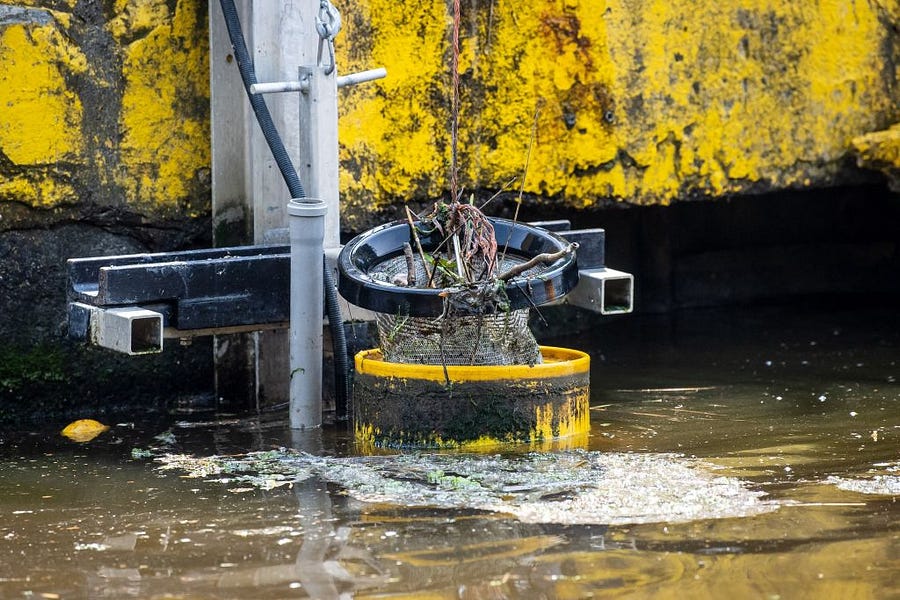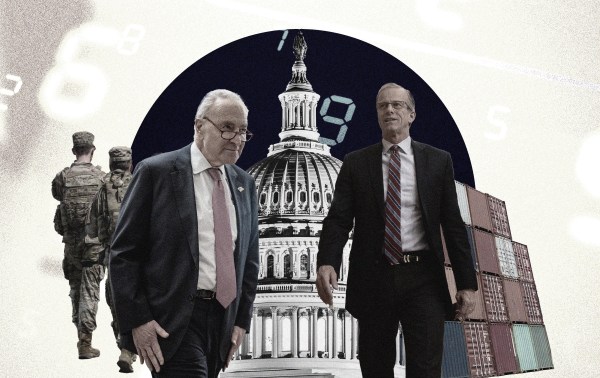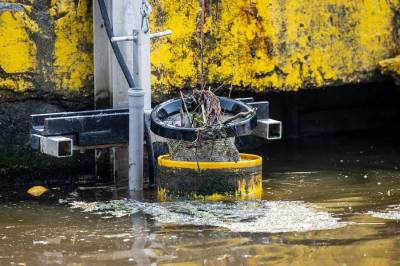The latest report from the Intergovernmental Panel on Climate Change has reenergized the debate about how to reduce risks from the increasing amount of CO2 in the atmosphere. Many on the left are calling for a massive and expensive government-run Green New Deal, and President Biden’s $3.5 trillion spending proposal includes billions to promote clean energy and reduce carbon emissions. On the right there are many who believe we should reduce the risk of climate change with a less costly and more effective innovation-led strategy.
History is on the side of an innovative technology approach. In the 1960s and 1970s, there were many who predicted that population growth would lead to massive starvation as the planet’s resources struggled to keep up with the growing number of mouths to feed. Instead of the predicted “population bomb,” however, we got the Green Revolution thanks to Norman Borlaug, who won the Nobel Prize for his work in creating strains of wheat that produced increased yields and were disease resistant.
On The Dispatch Podcast last week, Sarah Isgur and Jonah Goldberg expressed the hope that a future Norman Borlaug would do for reducing CO2 emissions what the original Borlaug did to feed the world. There may be a climate Borlaug out there, but it is far more likely that climate change will be solved by a million Borlaugs—small innovators whose efforts add up to big changes. The cost of innovation has declined radically since the Green Revolution of the 1960s, and we are already seeing an explosion of new carbon-reducing technologies.
We typically think that world-changing innovation is driven by a spark of insight in the mind of a genius. Borlaug certainly recognized the potential in crossbreeding strains of wheat to solve problems that plagued farmers. But perhaps more important was his commitment to the effort it took to find the right genetics.
In his book about Borlaug’s discovery, Charles Mann notes that, “A prerequisite for a successful scientific career is an enthusiastic willingness to pore through the minutiae of subjects that 99.9 percent of Earth’s population find screamingly dull.” Borlaug had that in spades. Mann recounts a discussion in which Borlaug considered how to overcome the incredible complexity of creating the right mix of genetic traits in wheat. Mann wrote, “Borlaug asked if the odds could be overcome by running truly massive trials—tens of thousands of crosses, year after years, a staggering amount of work—with high selectivity.” Ultimately, that is exactly the approach he followed, literally putting individual grains of pollen on selected breeds and tracking the results.
Of course, even after all that work there was no guarantee he would find a solution. That’s one reason there aren’t more breakthroughs like Borlaug’s—the cost of a single innovation can be very high, and the chance of success is low.
Hoping for a climate genius modeled on Borlaug is probably not a good strategy. To be sure, there have been remarkable breakthroughs in energy efficiency. In 2014, the Nobel Prize in Physics was awarded for the discovery of blue LEDs, which allowed the creation of white LED light bulbs. The Nobel committee noted, “With the advent of LED lamps we now have more long-lasting and more efficient alternatives to older light sources.” LEDs are a dramatic improvement over Edison’s incandescent light bulbs. But these types of innovations, while important, are unlikely to be enough to dramatically change global CO2 emissions.
Since Borlaug’s invention the cost of innovation has fallen dramatically, and now almost anyone looking for ways to cut CO2 emissions in big and small ways can find funding. Crowdfunding platforms like Indiegogo and Kickstarter make it easy for tinkerers to pitch ideas and access the resources necessary to develop them. Jon Leland, the vice president of insights at Kickstarter, worked at the Environmental Defense Fund before joining the crowdfunding platform. He told me that he moved to Kickstarter because “crowdfunding is able to accelerate change.”
The velocity of that change is evident in the creation of SeaBin. Tired of plastic from nearby marinas interfering with their surfing, two surfers conceived of a floating trash bin with a pump at the bottom to draw in trash and pump out water. When they put the idea up for crowdfunding, they raised hundreds of thousands of dollars from more than 80,000 donors. Five years later, SeaBins across the globe have collected nearly 5 million pounds of trash from the ocean.
Although not focused on climate change, it is a dramatic example of how the cost of innovation has declined, opening up new avenues for research. That spirit of innovation is now impacting how consumers use electricity and how utilities are decarbonizing.
Smart thermostats like Ecobee use artificial intelligence to help homeowners keep their house comfortable while saving energy. Electricity prices are highest between 4 p.m. and 7 p.m. p.m. as demand peaks and gas and coal plants are switched on to meet the increased need. Smart thermostats help shift demand to outside this period, heating or cooling a house before those critical hours. Some utilities provide a small rebate for users who reduce energy use during peak hours. Not only does this save money, it cuts CO2 emissions by encouraging users to conserve when electricity is generated by coal.
These innovations are changing how utilities operate. Evolve Energy launched in Texas with the specific mission of using consumer technologies to cut costs and CO2 emissions. Last year the company was bought by Octopus Energy, a U.K. company that is already putting a price and technology-driven model to work. The technology is so flexible, Octopus created the “Fan Club,” where customers who join receive low-cost energy when the utility’s wind turbines are blowing—a perfect time to turn on the dryer or charge an EV.
Octopus even makes its price data available to anyone, encouraging programmers to create new tools that help customers respond to price signals and the carbon intensity of the electricity. Several people have taken up the challenge, producing innovative apps like “Octopus Watch” for the Apple Watch that alerts Octopus customers to price changes.
Ecobee users can voluntarily share information about their energy use to be used by researchers who are trying to understand potential areas of conservation. The company sells it as “A powerful way for you to fight climate change and build better communities. With one click you can give scientists greater insight, expanding the breadth of their studies from dozens of homes to hundreds of thousands. You can help scientists better understand how our energy use changes over time.” Rather than one tired researcher slowly gathering data and applying it, information technology engages millions of people who add useful information that lead to new discoveries.
Transportation is another area where targeted innovations are making a difference.
Climate activists often point to public transit as a climate-friendly alternative to cars. For the vast majority of Americans, though, transit isn’t a workable option. The reason is simple: the schedules and routes offered by transit don’t fit the needs of potential riders. A company called Pantonium is trying to fix that.
Using an app-based system, Pantonium worked with the city of Belleville, Ontario, to let riders request trips, indicating where they wanted to go and the time they needed to arrive. The system dynamically creates bus routes to pick up riders near their location, dropping each person off at the chosen destination at the right time. One Belleville transit official explained that riders “no longer have to plan around us. We get to plan around them.” The system tripled ridership and expanded the coverage area by 70 percent. And because they go where the people are, skipping stops without riders, they cut fleet mileage—and CO2 emissions—by 30 percent. Cities like Sioux City, Iowa, are now implementing the system as well.
Belleville didn’t replace all fixed transit routes, but the information helped eliminate the unproductive ones. It also helped transit managers put fixed routes where consistent demand justified more traditional bus service.
This is how we will reduce the risk from climate change—providing small innovations that engage individuals. And while they begin small, they are flexible enough to grow and be applied in big U.S. cities or small developing countries.
I understand the desire to look for a climate Borlaug. Proportionality bias is the belief that big problems have big causes. According to this belief, climate change is caused by Big Oil, Big Agriculture, or Big Whatever, and therefore requires a Big Response. The reality is more mundane, that the climate impact is the result of many small actions. Similarly, we tend to believe that big problems require big solutions, when the answer is more likely to come from small efforts.
There may even be a climate Borlaug in our future. I certainly hope there is. But we shouldn’t let that hope distract us from what is more likely to be the true solution—millions of small innovators acting independently. Our climate policy should focus less on planning and subsidies, and more on encouraging the small innovations that are already reducing emissions in a way that respects individual freedom and prosperity.
Todd Myers is the environmental director of the Washington Policy Center.






Please note that we at The Dispatch hold ourselves, our work, and our commenters to a higher standard than other places on the internet. We welcome comments that foster genuine debate or discussion—including comments critical of us or our work—but responses that include ad hominem attacks on fellow Dispatch members or are intended to stoke fear and anger may be moderated.
With your membership, you only have the ability to comment on The Morning Dispatch articles. Consider upgrading to join the conversation everywhere.